Sustainability
The issue of sustainability affects the entire food service industry. Everyone, from suppliers to consumers, needs to be involved in making right choices about selection, distribution, consumption, and disposal. Take a look below and see some of the programs we run across our company to do our part. We work hard each year to spread these programs further across our company.
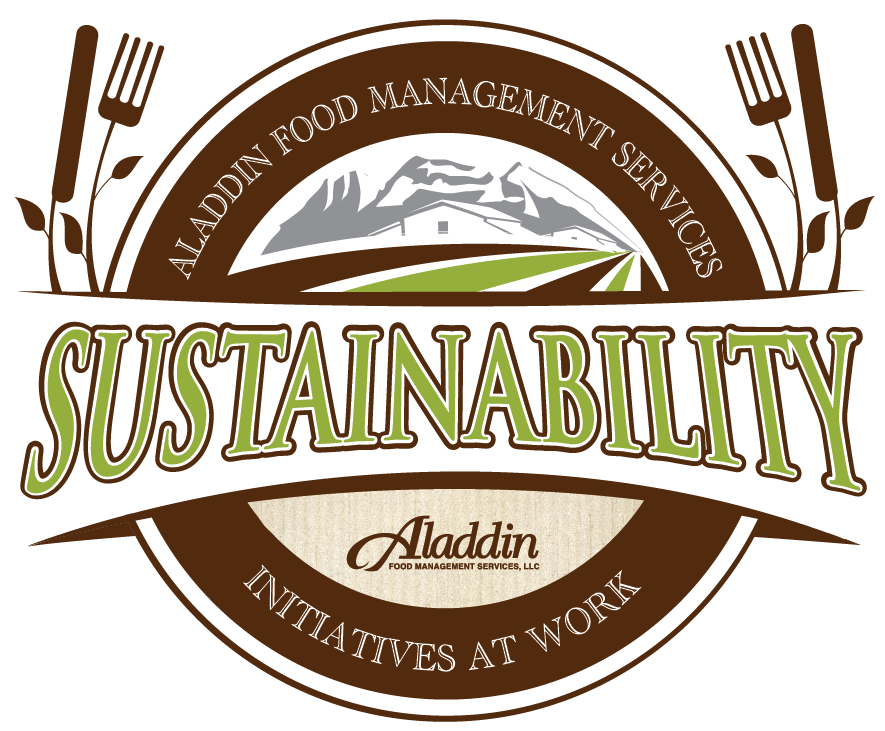
Corporate Sustainability Statement
Aladdin Food Management Services, LLC exists for the purpose of creating value for the company’s stakeholders, increasing the standard of living and quality of life of its employees, and otherwise contributing to the economic, environmental, and social well-being of its customers, suppliers, and the communities in which the company transacts business. Aladdin places strong emphasis on the use of both renewable and recyclable raw materials and strives to offer ecologically sound products and services, capable of continuously meeting our customers’ needs with respect to quality, service, economy, safety, and environmental impact. Aladdin desires to:
- Lead, educate, and serve as a sustainability resource within the education, healthcare, and business & industry market segments
- Provide eco-friendly products and services
- Integrate sustainable practices into all of our corporate business decisions and local unit operations
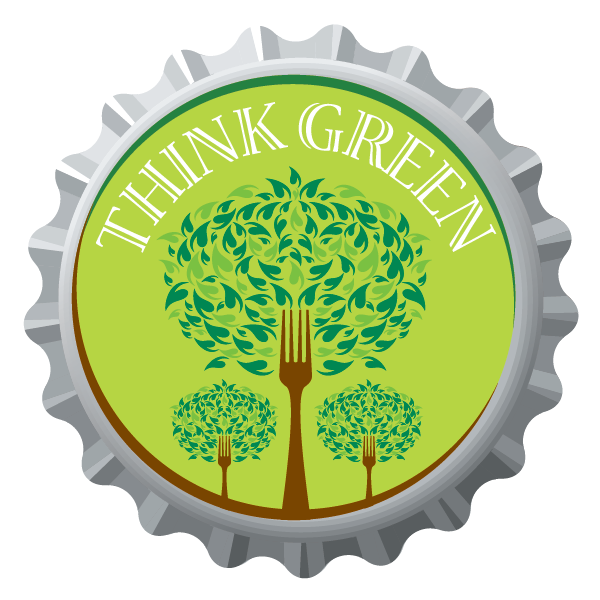

Responsible Procurement
The environmental impacts of our purchasing practices and how we operate our business every day are important. Aladdin seeks to purchase and use environmentally preferable products and services, and to recognize suppliers who reduce environmental impacts in their production and distribution systems or services.
Aladdin partners with our suppliers, customers, and environmental experts to understand the impacts of available products and services on the environment and communities and to identify better solutions and alternatives. At Aladdin, we try to THINK LOCAL, BUY LOCAL, and BE LOCAL. Some of the benefits of purchasing sustainably grown foods locally are as follows:
- Local food purchases mean fresher products, especially for accounts not located in Florida, California and Washington, where a large percentage of our nation’s fruit and vegetables are grown. Produce grown in these three states may have to travel thousands of miles before reaching consumers in the Northeast, Mid-Atlantic, Southeast, or Midwest.
- Freshly picked local produce provides higher levels of nutrition, since nutrients diminish when fruit and vegetables are transported for days cross-country.
- Local food purchases support area producers and the economy, since money earned from foodservices’ purchases is typically invested back into producers’ communities.
- Local food purchases help to build mutually beneficial relationships with area food producers and provide opportunities for learning experiences about agriculture, including ways soil quality and weather impact production, and how food items are grown – with or without chemicals and pesticides.
- Purchasing locally-raised foods helps reduce atmospheric emissions, since fewer fossil fuels are expended to transport them.
Energy and Water Conservation
While the United States’ population nearly doubled between 1950 and 2000, during that
same period public demand for water more than tripled. Now, this increasing demand
for water is putting stress on available clean sources and distribution systems, threatening both human health and the environment. A recent government survey showed that at least 36 states are anticipating local, regional or statewide water shortages by 2013. When Aladdin dining services use more water-efficient equipment, technologies and procedures, the impact on remaining clean water supplies is minimized. In addition, Aladdin facilities that use water efficiently not only reduce sewage and water costs, but also lower energy costs.
Aladdin advocates and employs water management efforts to reduce consumption, to preserve scarce resources, and to reduce our contribution to greenhouse gas emissions and water shortages. We advocate for renewable water recapture to reduce our overall environmental footprint. Toward that end, Aladdin promotes dry cleaning techniques, the use of low-flow aerators and faucets in its kitchens, and more efficient ware washing via its trayless initiatives.
Historically, foodservice operators have focused on controlling labor and food costs and applied little emphasis or capability on analyzing the energy costs incurred by facility operations. Nonetheless, commercial kitchens in Aladdin dining facilities typically will consume approximately 550,000 BTU per square foot, which is four to eight times more energy used than in other common building types. Therefore, Aladdin units have the greatest opportunity to implement effective energy conservation practices. Aladdin dining services are now able to conserve substantial amounts of energy by implementing more energy-efficient operating procedures (e.g. ovens shut-down when not in use), by monitoring routine maintenance of kitchen equipment, by conducting facility energy audits (refrigeration, ventilation, etc.), and by recommending replacement for less energy-efficient equipment.
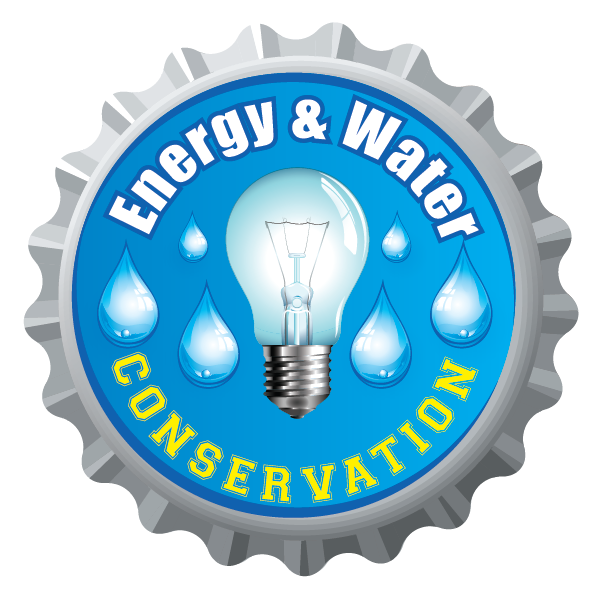
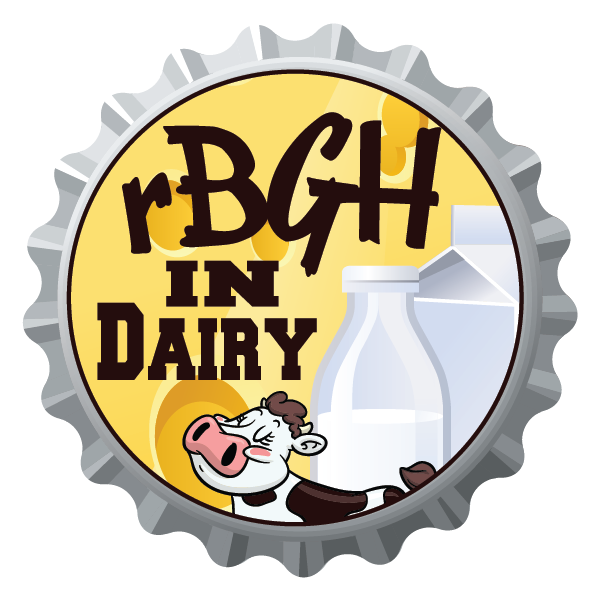
rBGH in Dairy
The issue of artificial bovine growth hormones (rBGH) is both complex and controversial. At the end of the day, our first concern at Aladdin is the potential effect on the health of our guests. Until further studies are conclusive, we choose to take a conservative position and offer only liquid milk from cows not treated with rBGH. Recombinant bovine growth hormone is a genetically engineered hormone that is injected into dairy cows to artificially increase their milk production. It has been shown to increase disease rates in cows and a significant body of scientific data has linked it to possible increases in cancer and antibiotic resistance in humans.
The injection of rBGH in cows elevates a powerful growth hormone called IGF-1. This hormone has been identified in numerous studies to increase breast, prostate, colon, lung and other cancers in humans. Scientific studies suggest that IGF-1 survives pasteurization as well as digestion and enters the bloodstream in sufficient quantities to potentially trigger increased cancer rates.
Artificial bovine growth hormone has been banned in most other industrialized nations of the world. Aladdin will continue to only source milk from cows not treated with rBGH.
NOTE: The F.D.A. has said no significant difference has been shown and no test can now distinguish between milk from rBGH treated and untreated cows. Not all of the suppliers of our other dairy products can promise that the milk they use comes from untreated cows.
Trans Fat-Free Shortening
Aladdin uses only non-hydrogenated canola shortening so as to minimize the presence of trans-fatty acids in deep-fried foods. Additionally, heart-healthy olive oil and canola oil are used in many of our salad dressings. Aladdin was one of the first food service management companies to use canola shortening company-wide.

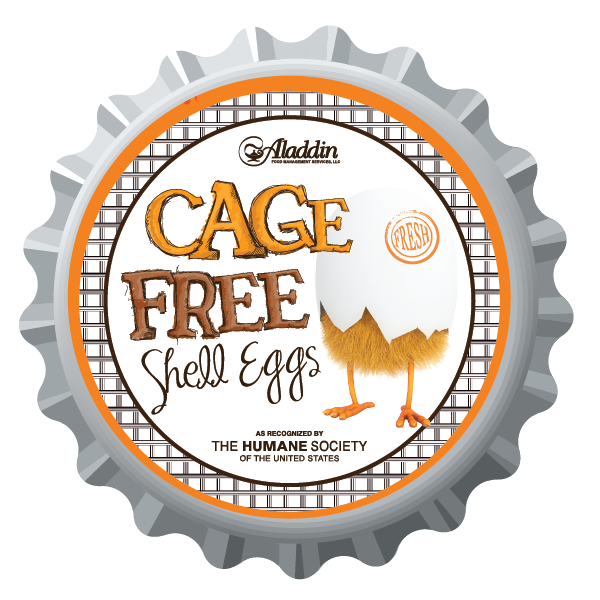
Cage-Free Shell Eggs
The Humane Society of the United States (HSUS) has recognized Aladdin for taking significant steps in moving toward using only cage-free eggs in its kitchens and its supply chains. Many Aladdin accounts now exclusively use only shell eggs that are cage-free.
Cage-Free Eggs are Better for Hens and for Consumers:
Battery cages restrict many natural behaviors that are critical to birds’ welfare, including the ability to nest, perch and forage. In battery cages, hens aren’t even able to fully extend their limbs.
The prestigious Pew Commission on Industrial Farm Animal Production concluded that battery cages should be eliminated. The Commission was funded by the Pew Charitable Trusts and Johns Hopkins School of Public Health and included the former U.S. Secretary of Agriculture.
The LayWel study – which is the most extensive scientific study into laying hen welfare – concluded that battery cages are the only method of housing hens that, under no circumstances, can provide “satisfactory welfare” for animals. The LayWel study involved working groups in seven European countries, funding from the European Commission and data from 230 flocks of hens.
The Netherlands Journal of Agricultural Science published a study that ranked 22 different methods of housing hens in terms of animal welfare on a zero-to-ten scale. Battery cages ranked 0.0 (literally as low as possible). Typical U.S. cage-free egg production systems ranked significantly higher, around 5.9.
A 2002 prospective case-control study published in the American Journal of Epidemiology reported that people who recently ate eggs from caged hens had about 200% higher odds of being sickened by Salmonella compared to people who did not eat eggs from hens kept in cages. The European Food Safety Authority found that “Without exception…there was significantly higher risk of Salmonella infection in hens confined in cages.”
Consumer organizations such as The Consumer Federation of America, Center for Food Safety and Center for Science in the Public Interest have all supported a ban on battery cages and a move to cage-free egg production.
Visit this website for more information. visit: www.humanesociety.org/issues/confinement_farm/
Antibiotic Reduction
It is estimated that between 9 and 13 million kilograms of antibiotics are used annually in the United States for raising livestock, with the majority being used for growth advancement and disease prevention purposes. Large amounts of antibiotics fed to livestock end up as fertilizer, which is commonly applied to agricultural land to provide crop nutrients. Therefore, food crops grown on these altered soils are exposed to antibiotics.
Scientists at the University of Minnesota have been evaluating the impact of antibiotic feeding in livestock production on the environment. One particular study, funded by the United States Department of Agriculture (USDA), found that food crops do accumulate antibiotics from soils spread with fertilizer that contains antibiotics. The ability of plants to absorb antibiotics raises the potential for contamination of human food supply.
However, the adverse impacts of consuming plants that contain small quantities of antibiotics are largely unknown. Consumption of antibiotics in plants may cause allergic reactions in sensitive populations, such as young children. There is also concern that consuming antibiotics may lead to the development of antimicrobial resistance, which can render antibiotics ineffective.
Further research is needed to investigate the presence of antibiotics in edible parts of plants, especially vegetables that are consumed raw, and how different plants absorb different antibiotic compounds. Research is ongoing at the University of Minnesota to further investigate the potential fate and transport of antibiotics introduced to the environment from livestock operations.
As a socially responsible company, Aladdin is committed to helping address this potential public health threat from antibiotic resistance.
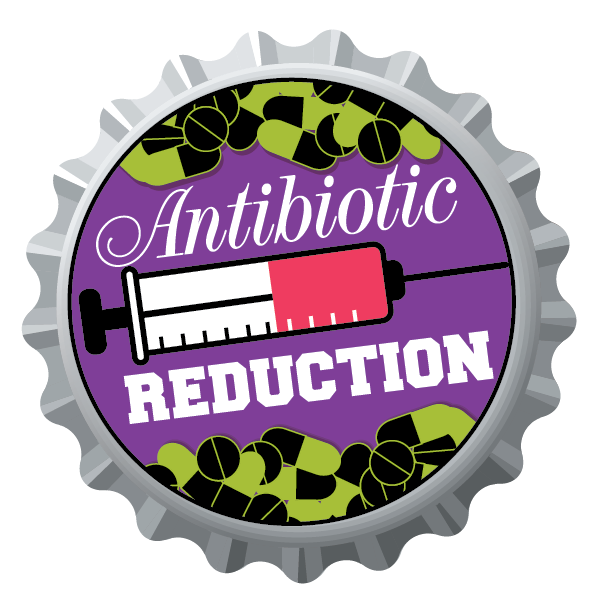

Seafood Watch
All Aladdin seafood is purchased in accordance with the Monterey Bay Aquarium’s Seafood Watch guidelines for sustainability: https://www.montereybayaquarium.org/cr/seafoodwatch.aspx
What is Seafood Watch? The Monterey Bay Aquarium Seafood Watch program helps consumers and businesses make choices for healthy oceans. Their recommendations indicate which seafood items are Best Choices, Good Alternatives, and which ones you should Avoid.
Seafood Watch recommendations are science-based, peer reviewed, and use ecosystem-based criteria. Seafood Watch helps sustain wild, diverse and healthy ocean ecosystems that will exist long into the future by encouraging consumers and businesses to purchase seafood that is fished or farmed in ways that don’t harm the environment.
Why Do Seafood Choices Matter? Nearly 85% of the world’s fisheries are fished to capacity, or over-fished. Our seafood choices have the power to make this situation worse, or improve it. Seafood Watch recommendations don’t hinge on any single issue. Instead, they consider the fishery, habitat, species, management, and a host of other factors that affect each species. In this way, Seafood Watch offers a complete vision of sustainability.
Mercury Awareness
Fish and shellfish are an important part of a healthy diet. Fish and shellfish contain high-quality protein and other essential nutrients, are low in saturated fat, and contain omega-3 fatty acids. A well-balanced diet that includes a variety of fish and shellfish can contribute to heart health and children’s proper growth and development. So, women and young children in particular should include fish or shellfish in their diets due to the many nutritional benefits.
However, nearly all fish and shellfish contain traces of mercury. For most people, the risk from mercury by eating fish and shellfish is not a health concern. Yet, some fish and shellfish contain higher levels of mercury that may harm an unborn baby or young child’s developing nervous system. The risks from mercury in fish and shellfish depend on the amount of fish and shellfish eaten and the levels of mercury in the fish and shellfish. Therefore, the Food and Drug Administration (FDA) and the Environmental Protection Agency (EPA) are advising women who may become pregnant, pregnant women, nursing mothers, and young children to avoid some types of fish and eat fish and shellfish that are lower in mercury.
By following these three recommendations for selecting and eating fish or shellfish, women and young children will receive the benefits of eating fish and shellfish and be confident that they have reduced their exposure to the harmful effects of mercury:
- Do not eat Shark, Swordfish, King Mackerel, or Tilefish because they contain high levels of mercury.
- Eat up to 12 ounces (2 average meals) a week of a variety of fish and shellfish that are lower in mercury.— Five of the most commonly eaten fish that are low in mercury are shrimp, canned light tuna, salmon, pollock, and catfish.— Another commonly eaten fish, albacore (“white”) tuna has more mercury than canned light tuna. So, when choosing your two meals of fish and shellfish, you may eat up to 6ounces (one average meal) of albacore tuna per week.
- Check local advisories about the safety of fish caught by family and friends in your local lakes, rivers, and coastal areas. If no advice is available, eat up to 6 ounces (one average meal) per week of fish you catch from local waters, but don’t consume any other fish during that week.
Follow these same recommendations when feeding fish and shellfish to your young child, but serve smaller portions.
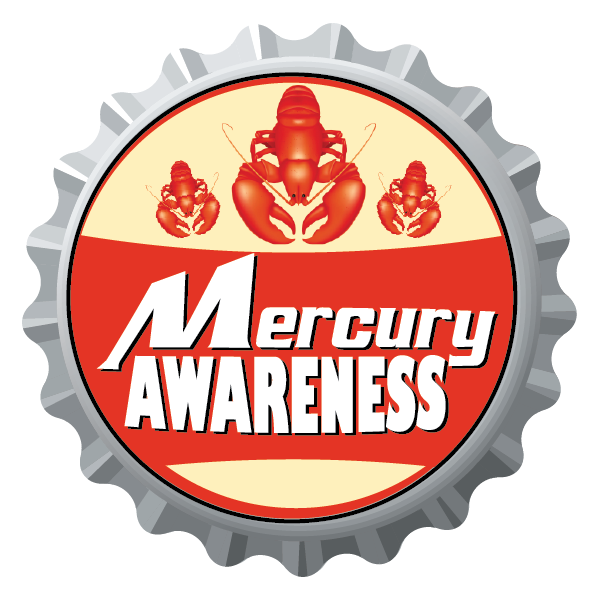

Food Waste Reduction
Aladdin is launching a company-wide Food Waste Reduction campaign in all of its operations. Food waste packs a double global warming whammy since it represents both the waste of the embodied energy it took to grow, harvest, transport and cook the food and significant methane emissions when the food decomposes in landfills. According to the U.S. EPA, landfills are the largest human-related source of methane in the U.S., accounting for 34 percent of all methane emissions.
In recent years, Aladdin has reduced food waste generated in its cafeterias substantially by:
- Educating chefs and kitchen staff on proper portioning and prepping techniques
- Introducing a daily waste monitoring program in all kitchens
- Initiating a consumer waste-reduction educational campaign including weighing and measuring food at dish return stations and encouraging trayless dining, where appropriate. As a result of these efforts, Aladdin achieved a substantial tonnage reduction in CO2 equivalent emissions.
Even before this Food Waste Reduction campaign, many of our accounts had been implementing innovative ways to reduce food waste. Many Aladdin accounts divert their kitchen waste through a variety of different avenues including on-site and off-site composting, direct relationships with farmers who use the waste for pig and chicken feed, biofuel processors, and food banks.
Currently, it is estimated that more than 40% of our accounts’ food waste (by weight) is diverted from landfills.
Foragers Program
Aladdin chefs have always regarded it a part of their jobs to seek out the best, most flavorful, and local ingredients. A group of 6 foragers – drawn from Aladdin chefs and managers – are located in each of the different districts of the country that Aladdin serves. They are tasked with discovering the best small-scale farmers and food producers in their regions and working to bring their wares into every account served by Aladdin.
By dedicating staff time to discovering new food producers, we hope to offer more small producers access to larger markets for their products – bridging the gap between small farms and the food service industry. The foragers’ work inspires other Aladdin chefs to think creatively so as to give our customers the opportunity to experience the very best foods in their regions, while supporting local economies.
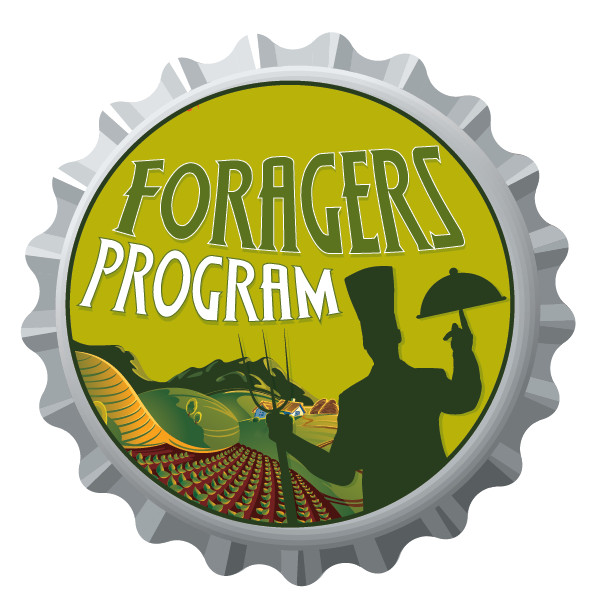
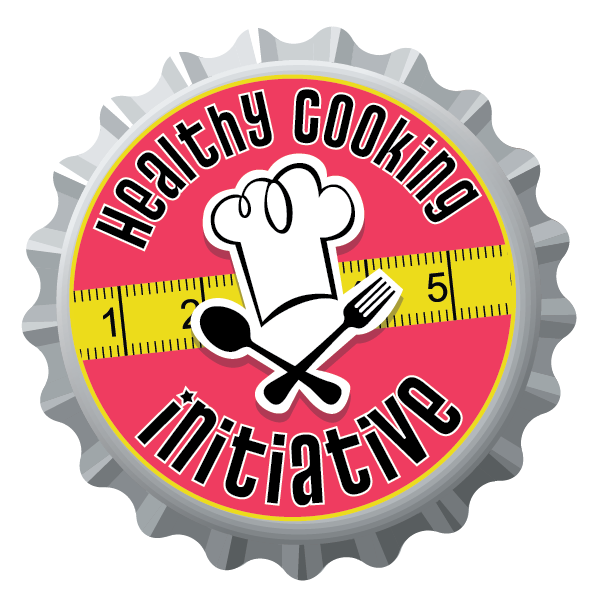
Healthy Cooking initiative
Healthy menu items are a mainstream offering throughout Aladdin facilities. According to the National Center for Health Statistics, more than one-third of U.S. adults (35.7%) are obese and nearly 65 percent of adults in the United States are considered overweight or obese. In 2008, medical costs associated with obesity were estimated at $147 billion; the medical costs for people who are obese were $1,429 higher than those of normal weight. Growing portion sizes and empty calories are major contributors to expanding waistlines and health complications including heart disease, diabetes, and high blood pressure. As a socially-responsible food service company, we knew that we had to help our guests make a change.
In addition to our existing policies of using healthy cooking techniques, wholesome products, and trans-fat free shortening; Aladdin has implemented new guidelines designed to ensure healthy offerings are available throughout our accounts. Aladdin’s Healthy Cooking Initiative emphasizes the use of fresh vegetables, fruits and whole grains as featured ingredients, utilizes stealth nutrition to camouflage healthy choices in everyday food preparation, and encourages guests to choose healthy dishes through ease of access and appealing presentation. Portion sizes are based on the 2010 USDA Dietary Guidelines for Americans, and high fructose corn syrup and trans fats are prohibited from use in Aladdin made-from-scratch foods.
Because all of our chefs endeavor to cook-from-scratch, we can control every single ingredient of our menu. Ultimately, our goal is to offer our guests great-tasting, healthful food options.
Campus Garden
Many Aladdin school and college accounts are creating campus gardens to increase awareness and to reap the benefits of fresh local produce. Freshly picked produce is typically more nutritious than herbs, fruit or vegetables that have traveled hundreds of miles to dining facilities. The amount of fuel required to deliver the freshly grown products is typically less than that used by local suppliers and emits fewer greenhouse gases since the products did not have to travel from another part of the United
States.
To support and sponsor these campus gardens, Aladdin:
- Helps select the types of produce that can be raised during the local growing season and determines which products will be used in its campus dining operations
- Recommends the best hoop house or cold frame configuration to be used in a particular climate
- Works with faculty to develop age-appropriate curriculum around the campus garden
- Helps fund the program and, in turn, receives produce at no cost or at fair market value
- Works closely with the campus gardening staff to determine when garden-grown items will be available, estimates quantities produced, and determines how produce will be harvested and delivered
- Ensures that growing methods, as well as handling practices, comply with local health and food safety standards, including use of chemicals to deal with pests and insects
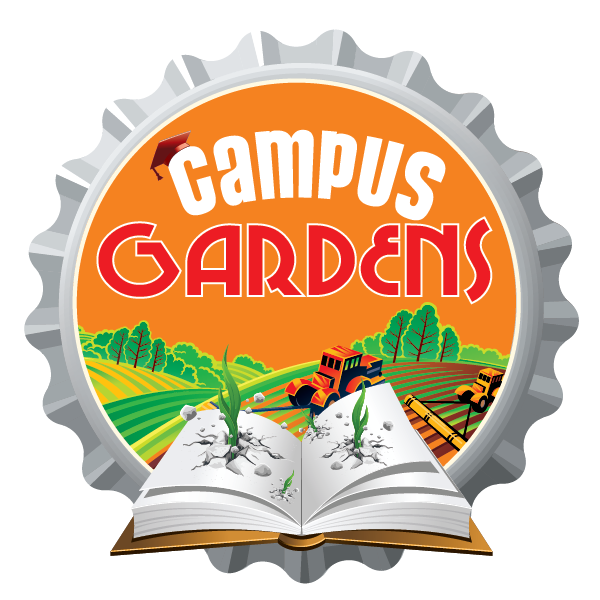

Farm to Table (F2T)
Aladdin’s Farm to Table (F2T) program is about investing in the health of our communities and the future of our food supply. In search of the freshest, best tasting ingredients; Aladdin chefs have always purchased produce and baked goods locally. However, we didn’t think of local purchasing as a “political act,” but merely as the way to get the highest quality products. We came to realize how much flavor was being lost in exchange for agribusiness efficiencies and decided to begin a concerted effort in support of local farmers to preserve flavor on the plate.
F2T is now a company-wide initiative to buy locally.
Our first choice is to purchase seasonal and regional ingredients from a 150-mile radius of each account. These gems of the earth are often prepared and served within 48 hours of harvest. The result is healthier communities and customers.
By buying directly from farmers, we have much more control over what types of agribusiness we are supporting. We support true family farms where the owners live on or nearby the land, work it themselves and therefore are conscientious stewards. We also support farmers who are preserving the diversity of our food choices by planting heirloom vegetables rather than genetically-modified super-produce.
F2T also has an effect on the flavor and nutritional value of the food we serve. A tomato grown without pesticides and ripened on the vine tastes unbelievably better than one sprayed with chemicals, picked while still green, trucked thousands of miles and force-ripened in a warehouse. It is especially important to Aladdin chefs to start with food that is alive with flavor.
Buying 100% locally is not yet practical but the commitment we have made to F2T will help ensure that our customers can eat well today and tomorrow.
Responsible Disposables
Aladdin is innovating to reduce, reuse, and recycle. Just like our food choices, our selection of to-go containers and disposable service ware has environmental impacts. At Aladdin, our first choice is always to encourage the use china and silverware. When to-go containers are necessary, we try hard to reduce the effects of their production and disposal.
Some of our accounts use plates, clamshells, cups, bowls and flatware from renewable sources like corn, sugarcane, and potato starch in select locations. We are conscious that questions remain about the energy inputs required to manufacture and transport these products and the resulting impacts on climate change from both manufacturing and disposal. We continue to research options and await more public, peer-reviewed studies.
We are also actively seeking alternatives to disposable containers. What happens after the products are used is crucial as well. We recycle whenever possible and compost at many account locations.
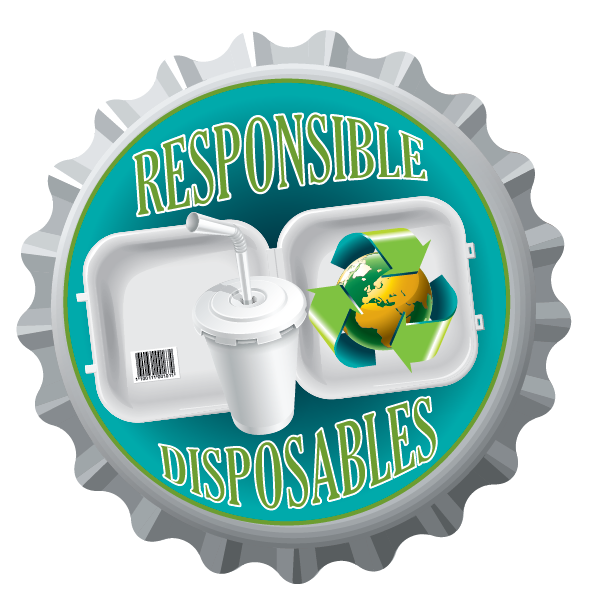

Celebrating Local Food and Farms
To support local communities and farmers, Aladdin dining services are strongly encouraged to write seasonal menus. This does not mean just serving local apples when they are available in the fall, but actually writing speci?c menus by season — spring, summer, fall and winter — and incorporating local foods into all of them. This can be challenging, especially for accounts located in regions with short growing seasons or in areas where local seafood and meats are not available.
So, in order to foster menu development at these accounts, Corporate Executive Chef Dennis Vodzak has issued an Eat Local challenge to all Aladdin chefs: hold an event with a meal made completely from local ingredients. Everything used in the preparation of the food must come from within a 150-mile radius of the account. Our chefs must be able to create amazing, diverse meals using ingredients from their food sheds in a competition to become the Eat Local Masters champion.
The event will illustrate to our guests both the great taste of local foods and the precarious state of our food supply. Materials will be available outlining the loss of biodiversity in the US with local examples. Solutions are presented as well, including information on what guests can do to support local agriculture and stop the loss of our local food supply. Aladdin’s Farm To Table (F2T) program is highlighted, along with suggestions to shop at farmers markets, support local businesses, etc.
Waste Stream Management
Aladdin views the responsible management of waste as a requirement to sustain and restore our natural resources as well as the communities in which we serve. We are committed to minimizing our environmental footprint by fostering a culture that reduces, reuses, and recycles waste.
To support a closed-loop waste management process, our innovative practices include partnering with suppliers who share our vision, working to reduce source packaging, enabling recovery and reuse of discarded materials, and recycling waste to create raw materials for other purposes. Aladdin is always seeking new and innovative ways to minimize its environmental footprint and to achieving a goal of zero waste to landfill.
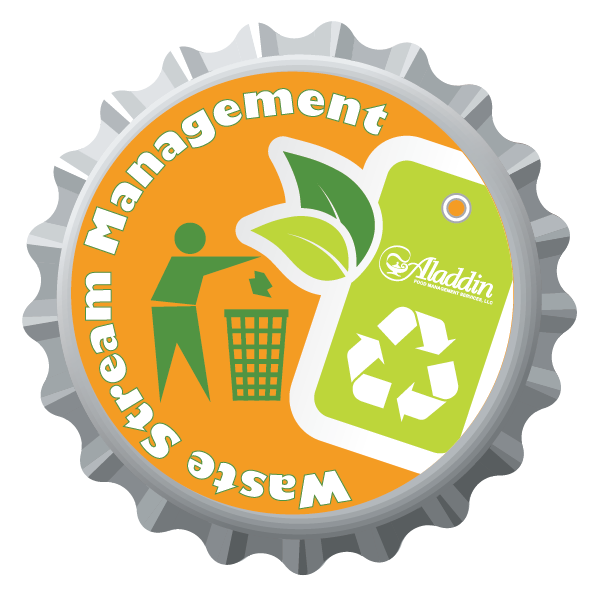

Transportation
Few Aladdin accounts can function without hosting the activities of a wide variety of motor vehicles. Determining which vehicles are most appropriate for each account’s missions, sustainability goals and green standards can be challenging, given the plethora of available vehicle types and alternative fuels now on the market. When considering nontraditional vs. traditional transportation options, it is important for Aladdin managers to evaluate environmental implications, economic costs, and benefits. At this writing, there is no one-size-fits-all solution to reduce fossil fuel consumption and air pollution and to increase vehicle recycling. This means that individual Aladdin accounts must assemble a portfolio of different vehicles and fuels to reach Aladdin and client sustainability aspirations.
Aladdin dining services managers conduct relevant vehicle research on their own before dismissing alternative fuels or vehicles as an option. A successful sustainable transportation program will involve client administrators, employees, and key maintenance staff who advocate for and support the undertaking. When developing a sustainable transportation program one of the first steps for dining services is to conduct a fleet audit of existing vehicles.
This audit is intended to establish lifecycle costs, fuel economy, environmental implications, and initial costs. In some instances, an audit may indicate that it is easier and more cost effective for dining services to implement an efficiency program—based on existing vehicles and fuels—that includes proper maintenance, shorter driving schedules, full load dispatching and a reduction in vehicle miles traveled. In these instances, a reduction in greenhouse gas emissions can sometimes be generated by slight modifications in daily fleet use.
To reduce emission levels to a minimum, Aladdin is now considering:
- Requiring its key vendors to deliver goods only in alternative fuel vehicles, ensuring loading schedules of delivery trucks that are as efficient as possible
- Giving incentives to employees to travel to and from work by bicycle or public transportation.
100% Organic
One of the most challenging aspects of the organic movement has been how to adapt green principles to a large scale dining service. Aladdin was the first food management company to meet the challenge by implementing both organic and sustainable practices in a single setting.
Aladdin manages the first all-vegetarian and 100% organic college and school dining programs in the United States at Maharishi University of Management and the Maharishi School in Fairfield, IA.

